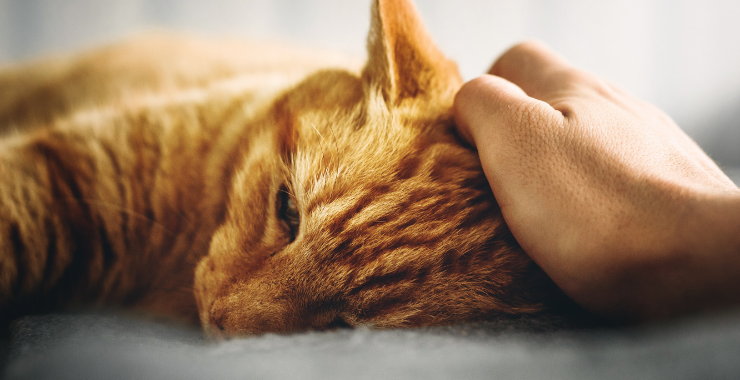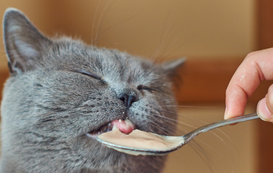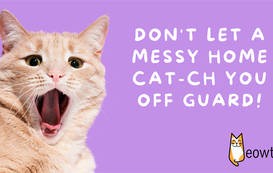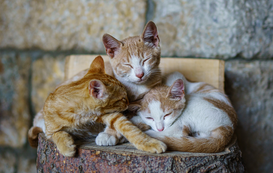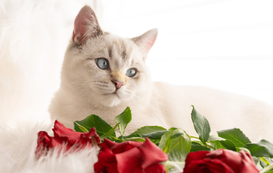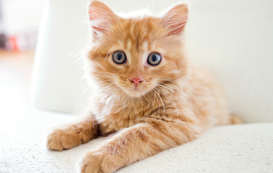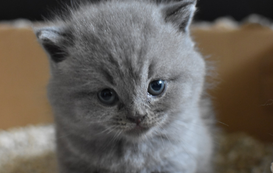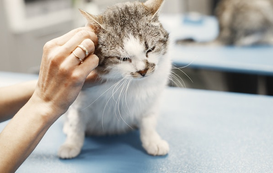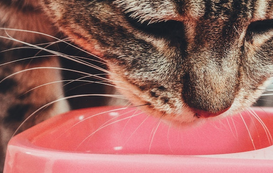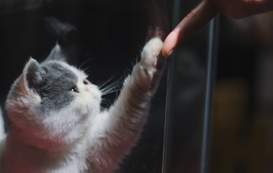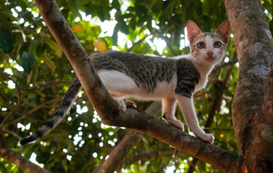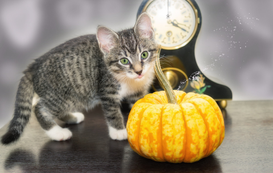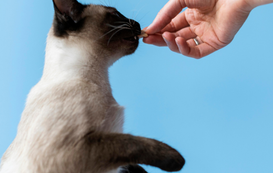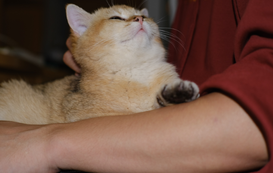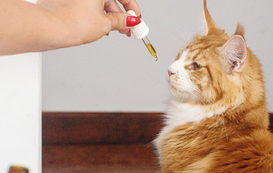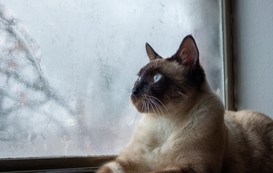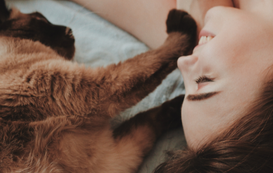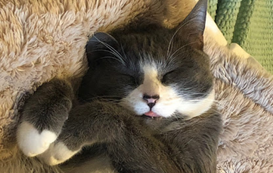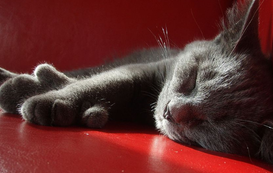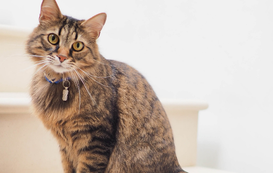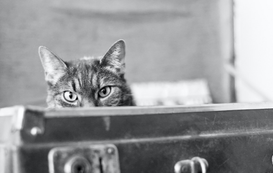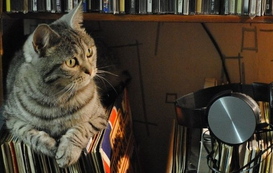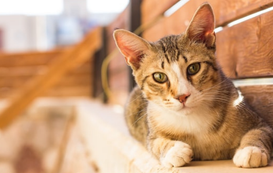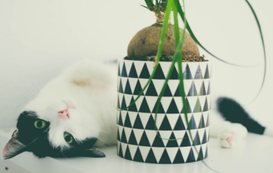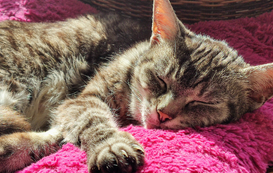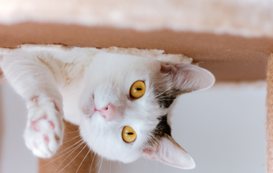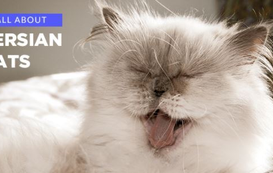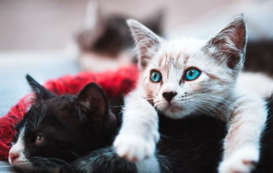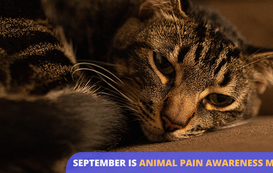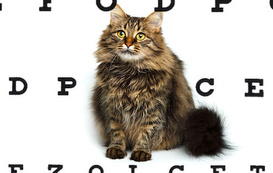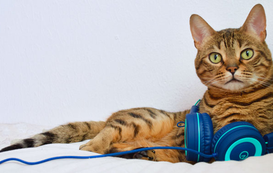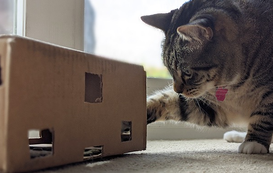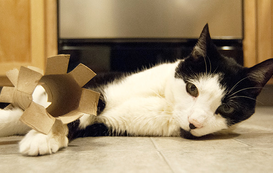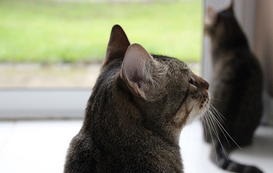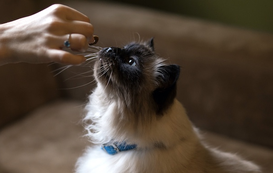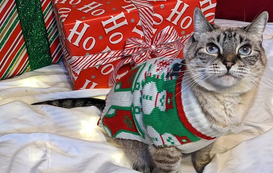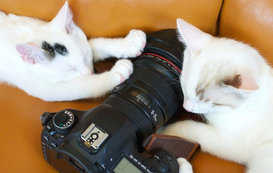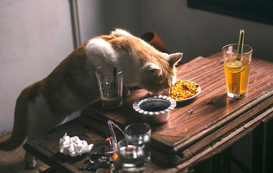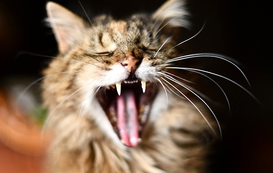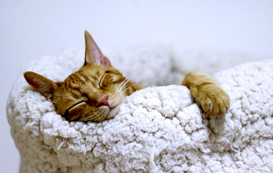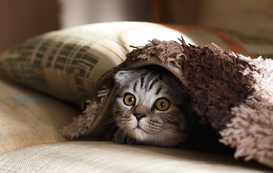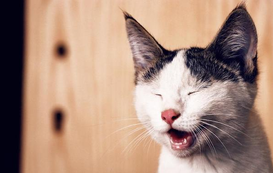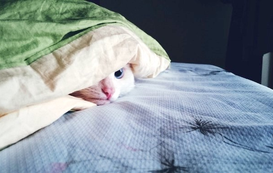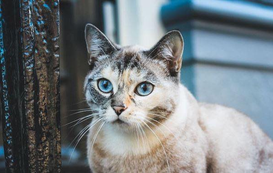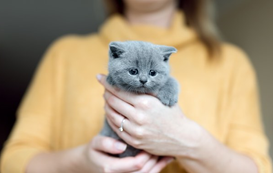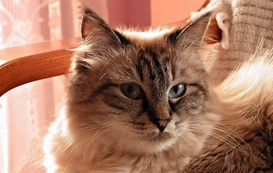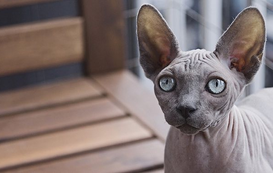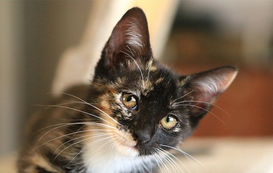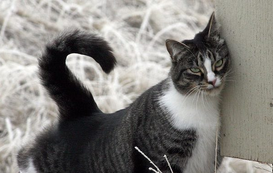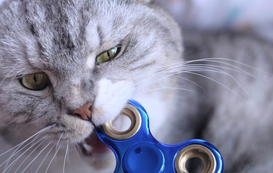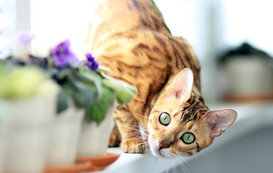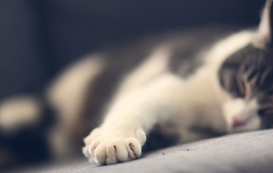Winter can bring dehydrated skin for humans and cats alike - not just because of the chilly temperatures outside but also dry, heated indoor air. Dry skin is uncomfortable for your cat, and scratching may result in skin infections.
Your cat's dry, irritated skin might also lead to excessive shedding and dander, which could aggravate human allergies. In addition, indoor forced air can lead to irritated noses and respiratory tracts that can cause cold-like symptoms such as nasal congestion and coughing. Before you know it, you and your kitty are caught in a cycle of winter miseries!
No worries, though - there are some simple, effective ways to deal with dry wintertime skin, and one of them can even make winter more pleasant for you.
Here are some answers to common questions about dry, flaky skin in cats and how to make these problems a thing of the past:
How do I know if my cat is impacted by dry winter skin?
Cats with dry skin may develop white flakes in their fur that resemble dandruff, and you may see your cat clawing at certain spots. Dandruff is not aesthetically pleasing, but it is not harmful in and of itself. However, if your cat continues to claw at their skin, much bigger skin problems can follow. So, addressing this issue as soon as you notice it is essential.
What is the cause of my cat's dry, flaky skin?
Dry skin is a fairly common problem for felines. Aside from underlying medical issues, environmental factors commonly cause dry, flaky skin in cats. The top two are low-humidity indoor air and inadequate diets. So, let's take a look at those first:
Could it be the forced hot air in my home?
Could your affinity for cranking up the heat in winter be blamed for your kitty's dry skin? If so, humidifiers are an excellent solution to indoor dryness. However, it's essential to use them properly by using bottled distilled water or demineralized water to fill your humidifier's water reservoir. Regular tap water from the faucet contains naturally occurring minerals that can contribute to the growth of bacteria in your humidifier (and you don't want that released into the air!).
Consider investing in a hygrometer so you can keep a check on your indoor humidity levels. Aim for a humidity level of 45-55% - that's a good range for your kitty's and your health.
Is my cat missing something in their diet?
According to VCA Animal Hospitals, insufficient intake of essential fatty acids (EFAs) could cause dry skin. EFAs are vital for humans and animals alike for good health, and they need to be ingested as the body cannot synthesize them. EFA insufficiency results in scaly, dry skin, hair that mats easily, and loss of skin suppleness. (Lack of EFAs can also lead to ear infection, according to VCA's experts.)
When cats have issues with their skin and coat, particularly those that cause itch, VCA reports "providing omega-3 fatty acids (FAs) from fish can make a dramatic difference."
Talk to your vet about supplementing everyday meals with flaxseed, salmon, or fish oils. Providing essential fat-fortified food may also be beneficial to your cat.
Is my cat not grooming enough?
Reduced grooming, which can happen in obese cats or cats with arthritis, is also sometimes to blame for cats having dry, flake-ridden skin. Both conditions can lead to mobility problems. Whether due to body size or pain avoidance, cats are consequently unable to groom their backs, resulting in inflammation and flaking.
Regular grooming is the best approach to maintaining the overall health of the skin and coat, preventing mats and tangles, and eliminating stray hair. Regularly grooming your cat is even more critical if your kitty cannot groom themselves due to weight- or joint-related issues. Dander will be exacerbated if your cat cannot groom to remove dead skin cells. You can learn how to help with the Grooming 101 blog post.
If weight is to blame for lack of grooming, the best way to help your cat with their overall health is to help them lose weight not only so they can groom themselves but also be healthy and happy. Talk to your vet about switching to cat food that promotes a healthy weight and adding more activity to their daily routine.
Whether or not there are skin issues at the time, it is always a great idea to address potential joint problems you notice, such as arthritis symptoms. Keep an eye out for signs of pain, lack of activity, or reduced mobility, especially if your kitty is approaching their senior years.
Am I bathing my cat too often or with the wrong product?
Bathing habits can also be to blame for these types of pesky skin issues.
Dry, flaky skin might result from using the incorrect shampoo or too-hot water, and the problem tends to become more apparent in the winter when skin is dry to begin with. It is important to use shampoos specially formulated for cats when bathing them, as other formulas are too harsh for cats' delicate skin. In particular, cat shampoos containing oatmeal are ideal for soothing dry skin in the winter.
Or, perhaps you are bathing your kitty too often. Bathing is an integral part of grooming if your cat is not the best "self-groomer" in the world, but this is a case where less is more. Bathing too often saps skin of its natural oils. Most healthy, mobile cats only need a bath about once a year unless they encounter something unusual that leaves their fur sticky or soiled.
Meanwhile, cleaning mildly dirty fur is simple with cat wipes or waterless shampoo. Using a leave-on moisturizer with aloe vera can also be a big help.
Could something else be going on with my cat's health?
If you notice your cat is scratching a lot, suddenly feels unwell, or has lost some fur, there is probably something else to blame than simply dry air or grooming challenges.
Consult your veterinarian to rule out any potential medical problems and determine the best course of action since there are numerous additional causes for a flaky coat. Some hormonal conditions such as thyroid disease, allergies, and skin parasite issues like fleas, mites, and lice are also possible causes of itchy skin. (You can learn more about the underlying causes of itchy skin here.)
Only a vet can say if these issues are at the root of your cat's skin issues, so don't try to diagnose and treat them on your own.
The Takeaway
These tips can help soothe your kitty's winter skin and make them more comfortable. If dry, flaky skin is a problem year-round or doesn't alleviate after trying some solutions, it's essential to find out what's going on as your kitty could have a chronic skin issue or some other medical condition - make that vet appointment right meow!
Photo by Alexander Andrews on Unsplash
Ready to find the purrfect sitter for your feline friend? Find a cat sitter on Meowtel today!

